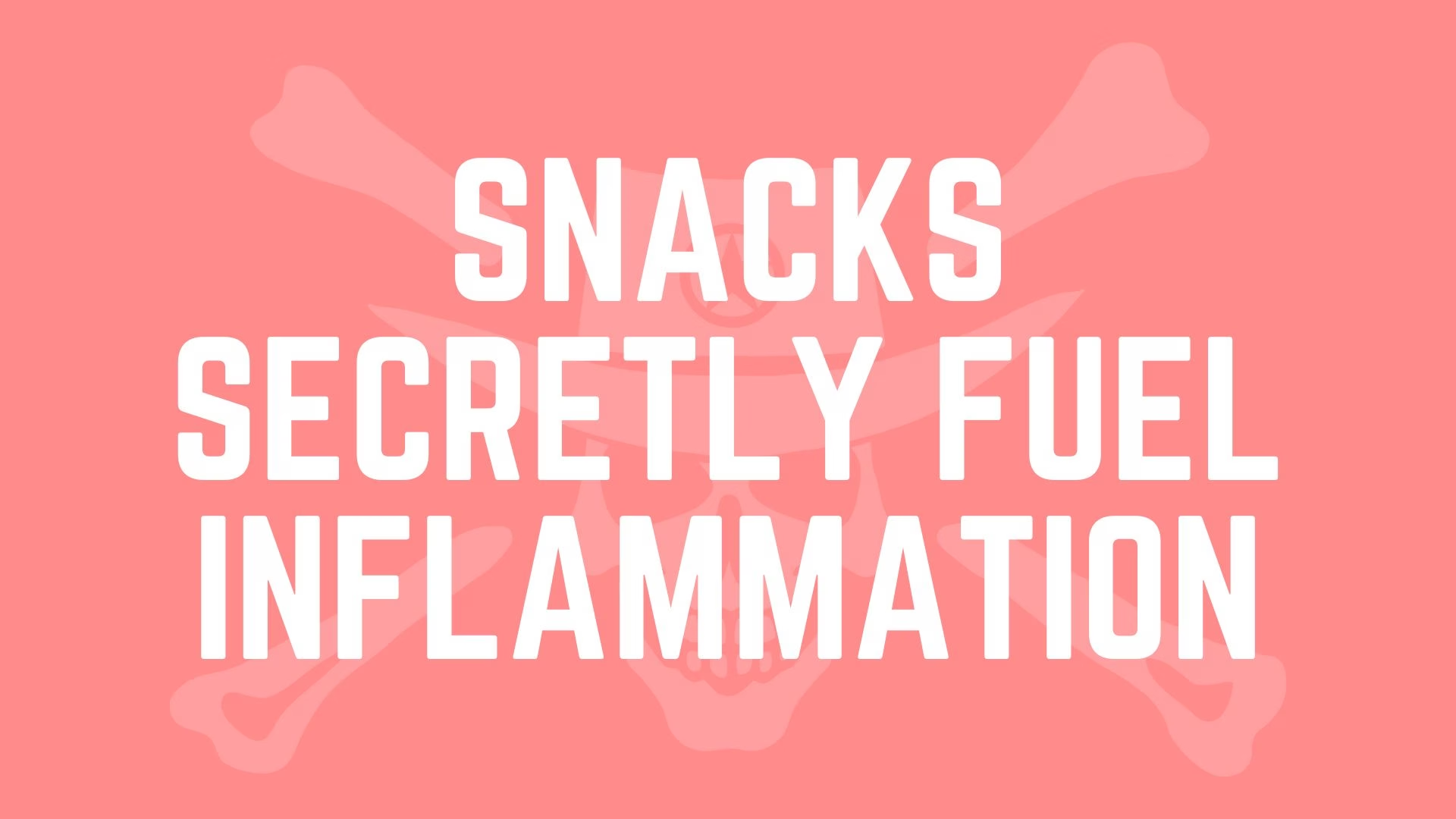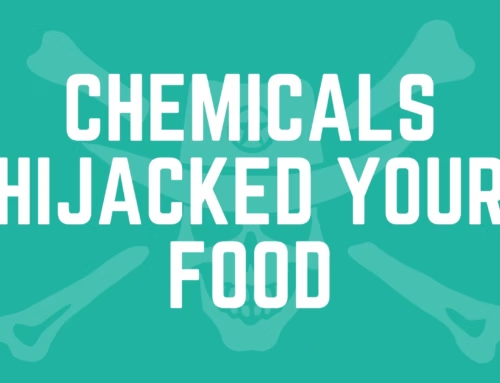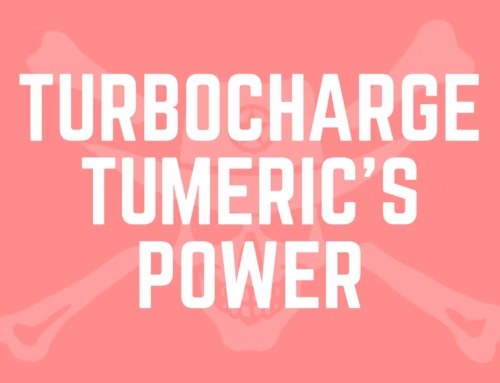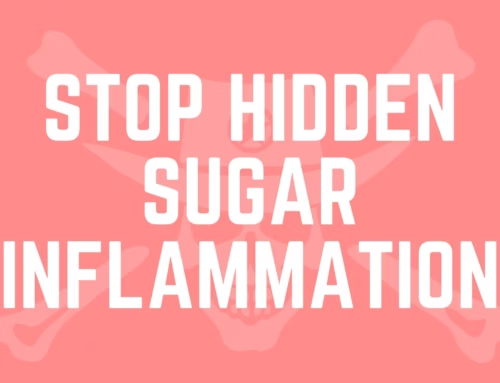Ultra-Processed Snacks: How Convenience Is Costing Your Health
The Snack Trap: Why Convenience Backfires
Picture this: you’re running between meetings or heading out for a hike, and a quick grab of a bag of chips feels like salvation. But that momentary rush of satisfaction is followed by an energy crash, achy joints, and brain fog. You deserve better fuel—snacks that sustain your spirit and your body. Let’s see why our easy go-tos are backfiring.
How These Foods Hijack Your Health
Ultra-processed snacks aren’t innocent bystanders; they actively flip your immune system’s switch to “fight.” Within minutes of eating, they:
- Seed oils oxidize into cell-damaging compounds.
- Sugars spike your insulin and feed inflammatory gut bacteria.
- Additives stress your gut lining, letting toxins through.
- Sodium overload raises blood pressure and fuels inflammation.
But here’s the good news: once you replace them, you’ll notice smoother digestion, steadier energy, and clearer thinking almost immediately.
Meet the Inflammatory Culprits
If you want to break free, start by spotting the repeat offenders lurking in every package:
- Partially hydrogenated oils: Trans fats that double your heart-disease risk—look for “0 g trans fat” labels to confirm none are hidden in the “0.5 g per serving.”
- High-fructose corn syrup: A driver of fatty liver and elevated IL-6 inflammatory markers.
- Synthetic additives & colorants: Lab-made chemicals that disrupt your gut bacteria and trigger immune overreactions.
Once you learn their names, you’ll never unknow them—making it that much easier to dodge them at the store.
Decode Sneaky Ingredients
Manufacturers love to mask inflammatory culprits under fancy names. Once you know what to look for—and why—they’re impossible to overlook:
Maltodextrin
What it is: A highly refined starch (from corn, rice, or potato) broken into short glucose chains.
Why to avoid: With a glycemic index often higher than table sugar, it spikes blood sugar and insulin, driving inflammatory signaling. It also feeds the wrong gut microbes, promoting dysbiosis and “leaky gut.”
TBHQ (Tertiary Butylhydroquinone)
What it is: A synthetic antioxidant preservative used to stop oils from going rancid.
Why to avoid: Animal studies link TBHQ to increased oxidative stress and liver inflammation. It can also irritate the gut lining, fueling systemic inflammation.
Calcium Propionate
What it is: A mold-inhibiting preservative in baked goods.
Why to avoid: Research shows it can disrupt your gut barrier, increase intestinal permeability, and trigger inflammatory immune responses.
Sugar Aliases
Names like dextrose, sucrose, evaporated cane juice, barley malt, and agave nectar still act like table sugar in your body—spiking blood sugar, triggering insulin surges, and promoting inflammatory pathways. When you see more than one sugar alias on the label, you’re getting a multi-layered inflammatory hit.
Sugar Alcohols
Common names: Xylitol, sorbitol, erythritol, maltitol, mannitol
Why to avoid: Marketed as “no added sugar,” they still have a glycemic effect (especially maltitol) and ferment in the gut—leading to bloating, gas, and microbiome imbalance, all of which can drive inflammation.
Once these names jump off the label, choosing truly clean, anti-inflammatory snacks becomes second nature—freeing you to focus on the adventures you love.
Simple Swaps, Big Gains
You don’t have to resign yourself to celery sticks (though they’re great!). These tasty swaps keep flavor high and inflammation low:
- Raw Nuts & Seeds: Walnuts, almonds, pumpkin seeds—naturally anti-inflammatory.
Do: Pre-portion 1 oz servings. Avoid: Oil-roasted or candied mixes. - Fruit & Nut Butter: Apple slices with almond butter deliver fiber and healthy fats.
Do: Choose unsweetened butter. Avoid: Fruit cups in syrup. - Veggies & Hummus: Bell pepper, carrot, cucumber strips with homemade hummus.
Do: Blend chickpeas, olive oil, garlic. Avoid: Store dips with vegetable oils. - Energy Bites: Dates, oats, nuts, and spices rolled into balls.
Do: Sweeten only with dates. Avoid: Bars calling for syrups.
With these in your toolkit, you’ll breeze past the snack aisle with confidence.
Make Healthy the Easy Choice
Changing habits doesn’t have to be hard. Try these hacks:
- Snack kits: Keep pre-packed portions in your bag or desk.
- Weekly prep: Roast chickpeas or kale chips in one batch, then stash in jars.
- Mindful portions: Aim for 150–200 calories of protein + fiber to stay full and focused.
These systems turn good intentions into automatic wins.
Related Deep Dives
- How Processed Meats Contribute to Chronic Inflammation
- The Hidden Dangers of Refined Sugars on Your Immune System
- The Anti-Inflammatory Diet: What to Eat and Why
FAQ
- Are protein bars OK?
Only if they list whole-food ingredients first, use no seed oils, and have <2 g added sugar. - Is popcorn inflammatory?
Air-popped is fine; just steer clear of microwave bags with additive-laden oils. - How do I read labels faster?
Focus on ingredient count (<6) and flag any science-demo words.
Conclusion
Each time you choose a real-food snack over a package of empty promises, you’re quelling inflammation, stabilizing your energy, and investing in your long-term health. Start with one swap today—and feel how much smoother, sharper, and stronger you can be on every Jolly Outlaw adventure.
Disclaimer: This article is for educational purposes only and does not constitute medical advice. Always consult a qualified healthcare professional before making changes to your diet, exercise, supplement regimen, or lifestyle—especially if you have pre-existing conditions or are taking medication.





